The Next Tourism Generation: Building a skilled workforce
Conference The Next Tourism Generation: Building a skills workforce
18 November 2021, 10.00 – 17.15 CET
Scroll down to jump directly to the live streams links and join one or more sessions on the 18th November 2021 starting at 10:00 CET
Introduction
The nature of the tourism industry is complex, but it also has the potential to influence positive change. Commitment from all organizations in the tourism field is an essential factor in working together to rebuild tourism. It is necessary to develop an agile and future-proof sector, both in the short and long term. This means investing in human capital whilst preparing for digital developments and planning for more sustainable and impactful tourism solutions. But how do we as a travel sector really make a difference so that it will also change? How do we enable connections between education, industry, and governments, and what digital, green, and social implications are needed for future employment? During this conference, we aim to bridge this gap by providing more information and context on the necessary skills that the industry demands and discussing how to Upskill and Reskill and collaborate. We partner with some of the best experts, organizations, and educational institutions working in tourism skills development and share insights from the Next Tourism Generation Project.
The public event will be held on 18 November 2021, 10.00 – 17.15 CET, and will take place online. In 4 modules of 1hours and 15 minutes, experts will talk about key topics:
MODULE 1 – 10.00-11.15 CET: Upskilling and reskilling in tourism and hospitality
Keeping track of rapidly changing skills needs and bridging skills gaps to cope with a world in constant flux are major challenges for tourism businesses, education providers, and governmental bodies. This involves not only the acquisition of new skills but also life-long education and continuous re-skilling and up-skilling. This session will look at methods of how to keep track of rapidly changing needs.
Link to the live stream: https://youtu.be/u_wNKkLB8Lo
MODULE 2 – 12.00-13.15: Addressing skills needs with innovative collaboration
Addressing skills needs requires that the gap between key stakeholders in education, training, government, and industry be bridged. Collaboration is a useful approach to bridging this gap as it brings complementary knowledge and resources together from different fields of endeavor, resulting in innovative solutions to complex problems.
Link to the live stream: https://youtu.be/mb69_i1Cerk
MODULE 3 – 14.00-15.15: Integrating new skills into industry and education curricula
There is an urgency to support a dynamic level of agility within skills standards systems, qualification regulatory bodies, and training curricula to flexibly respond to changing employer skills needs. The COVID-19 crisis has highlighted the need for such agility in responding to new workplace challenges. Although education and government processes exist to facilitate communication with employers to varying degrees, what is lacking are activities to strengthen and improve employer voice in the governance and implementation of skills policies and skills auditing processes. There is a need to increase responsiveness by education and training providers to respond to employer skills gaps. To help achieve this, employers should be able to access greater knowledge of the channels that lead to quality skills standards in education and training which can help employer engagement with training content.
Link to the live stream: https://youtu.be/gliy6xUJ33U
MODULE 4 – 16.00-17.15: Envisioning a skills partnership in the tourism sector
The Pact for Skills in Tourism serves as a recovery strategy that implements an up/reskilling framework, maximizing the potential of the tourism sector, building resilience, and meeting the challenges of the green and digital transition. This in turn creates new job opportunities and paves the way to a skills partnership for the tourism ecosystem. It presents a roadmap towards skills transformation and contributes to post-COVID recovery through immediate, short- and long-term action and strategy. It further broadens the outcomes of the Blueprint on Sectoral Cooperation to address skills needs in the tourism sector, which provides key inputs to the future work of the skills partnership. This module’s theme shall set the base for overall higher qualification of the workforce in the sector, reducing job insecurity and improving working conditions that assure higher levels of recruitment and retention of workers.
Link to the live stream: https://youtu.be/p3zwDXRfnpw
Participation is free.
Speakers
The speakers below are confirmed.
More information on the speakers and the program will be uploaded soon.
Natalia Bayona – UNWTO
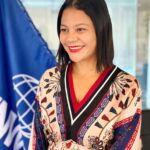
Natalia Bayona leads the innovation, education, and investments strategy of UNWTO, the UN specialized agency for the promotion of sustainable tourism. With a diverse background in politics, destination management, and business, she has become the first innovation director at UNWTO, has introduced entrepreneurship and education as key factors for tourism and development, and has positioned UNWTO as an innovation benchmark within the wider United Nations system as recognized by the UN Chief Executive Board (CEB) in 2020. Her work consists of identifying the most disruptive startups and investment projects and matching them with the Member States and leading corporations. As an advocate of youth and technology, she seeks to make entrepreneurs grow for a promising future in all regions.
Andrew Crisp

Andrew Crisp founded CarringtonCrisp with Mary Lou Carrington in 2003. Since that time the business has worked with more than 180 business schools and universities in 35 countries, through consulting, creative, and research services that help institutions change. Most recently, CarringtonCrisp published a report with LinkedIn on ‘The future of lifelong and executive education’ surveying more than 2500 learners and 500 employers worldwide. The study was the fourth in a series of reports over the past 18 months that have examined trends in the future of education and work. Previously, Andrew worked in a branding agency, as the Employment Correspondent for The European newspaper, as Marketing Director for internet business, and as Campaign Leader for an education charity.
Sanna-Mari Renfors

Sanna‐Mari Renfors is a Research Manager and the Head of the Center for Tourism Business Development at Satakunta University of Applied Sciences, Finland. She holds a PhD in marketing and a Master’s degree in education. She has extensive experience in managing international projects and conducting research in tourism skills and curriculum development. In particular, she is enthusiastic about increasing skills for sustainable development.
Saskia Griep

Saskia is co-founder and CEO of Better Places, a travel platform with a strong focus on sustainability. Better Places offers unique, high-quality travel experiences, 100% tailor-made by local travel experts. On the German market, they operate as FairAway. Saskia studied Tourism and Cultural Anthropology and has a postgraduate degree in Sustainable Business. She is experienced in all facets of the adventure travel industry from marketing to senior management. Her goal is to combine business opportunities with sustainability and at the same time preserve the planet’s natural resources. Before the pandemic, Better Places successfully organized the Better Tourism Academy, a challenging traineeship for graduates.
Lobke Elbers

Lobke Elbers is active in the field of innovation, technology, and digitization in travel and tourism and works in an international environment with a specific focus on the European tourism sector. Her activities primarily focus on the professionalization of the sector through her involvement in European research into current skills gaps and future skills needs in the field of digital, green, and social skills. Her activities include working with leading global organizations, including projects initiated by the European Commission, UNWTO, and other leading international knowledge partners, as well as national, regional, and local stakeholders.
Theodor Grassos
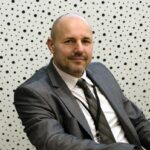
Theodor Grassos is Secretary General of the European Association of Institutes for Vocational Training. He has extensive experience both at EU level and in Greece, covering a period of over 20 years. His national experience includes reorganizing a number of public bodies, while he has been responsible for ex-ante and ongoing evaluation of Human Resources Development Operational Programmes, supporting the design and delivery of restructured and modernized ALMPs in different countries. At EU level he has been working in multicultural environments for the past 18 years, for different DG’s and EU Programmes. Fluent in four languages, he has also collaborated with the Structural Reform Support Service (now DG Reform). So far, he has been responsible for over 100 projects of various sizes at the national and EU level and is currently working with EU institutions and key umbrella organizations in the areas of employment, education, and social inclusion. Since 2021 Theodor is a member of the DG Employ Working Groups on Vocational Education and Training and the Green Transition and on Adult Learning – Opening Up Opportunities for All.
Ralf Burbach

Dr. Ralf Burbach has been the Head of the Hospitality Management Discipline and Assistant Head of the School of Hospitality Management and Tourism, Technological University Dublin (Ireland) for the past eleven years. He has worked in several lecturing and senior management roles in different higher education institutions since 2001. Ralf has thirteen years of professional hospitality industry experience and held managerial posts in Germany, the UK, and Ireland. Ralf is a member of the Irish Hospitality Institute, Chartered Member of the Chartered Institute of Personnel and Development, member of the national Hospitality Careers Oversight Group, Vice President at the International Council on Hotel, Restaurant and Institutional Education (ICHRIE), and Past President of EuroCHRIE. His main research interests are in electronic Human Resource Management, International Talent Management, and vocational training systems.
Hristo Yanev

Hristo Yanev is a serial entrepreneur, highly motivated, and a doer. He propels and helps businesses in innovations, tours & activities, digital marketing, IT, personal development, lecturing & public speaking, and autonomous vehicles. Voted one of the most inspiring and hard-working young entrepreneurs in Bulgaria for 2012, Hristo is one of the practice lecturers at ITB Berlin, WTM London, Emirates Academy of Hospitality, Varna University of Management, University College Birmingham, and different worldwide events.
Jenny De Saulles
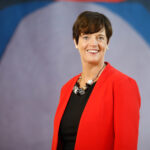
Jenny De Saulles is the Director of Sector Development within Fáilte Ireland. The directorate continues to play a critical role in supporting tourism businesses to survive the Covid crisis. The individual divisions within Sector Development work across strategic areas such as Enterprise Development, Accommodation Development, and Tourism Careers to secure a full recovery for the tourism sector and the development of an innovative, sustainable and resilient industry in the longer term. Jenny has worked with Fáilte Ireland for over 15 years in both national and regional roles working on Destination, Product, Industry, and Commercial Developments. Jenny has extensive FMCG experience, previously working with Nestlé across the globe for over 15 years in several commercial roles, and has also worked in private consultancy.
Fernanda Rabelo

Dr. Fernanda Rabelo is a researcher at the School of Hospitality Management and Tourism in Technological University Dublin, currently working in the Next Tourism Generation Skills Alliance, a European Commission Erasmus + funded project which aims to develop the blueprint for sectoral cooperation on skills in tourism. Prior to working at TU Dublin, she worked as a visiting research fellow at University College Cork, as an assistant lecturer in the Federal Fluminense Institute of Technology in Brazil, and as visiting scholar at Georgetown University, Washington DC.
Frances McGettigan
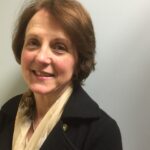
Frances McGettigan is a lecturer in the Technological University Shannon Midlands and Mid-West known as TUS in Athlone in Ireland. She lectures across an array of programs in subjects related to Tourism, Hospitality, and Sport from Level 7 to level 9 for more than 30 years. She completed her Masters in Tourism and Hospitality Education at the University of Surrey, England. During her academic career, Frances has continuously engaged with the tourism and hospitality sectors and participates in conferences, seminars, workshops on tourism developments. Her institute has been a member of Atlas since its early days and Frances has attended annual conferences and participated in various projects throughout this time.
Vicki Wolf

Vicki is ABTA’s Education Manager and has worked at ABTA – The Travel Association, in various roles since the end of 2000. Vicki’s main responsibilities include managing ABTA’s education program, including our online training portal, and managing our Education Partnerships with 12 universities and 3 colleges. Vicki has been involved in a number of apprenticeship standard reviews and represents ABTA on the Travel Apprenticeship Board. She was responsible for developing ABTA’s Education Partnerships program (launched in 2014) including ABTA’s internship (launched in 2015) for Education Partner Universities. Previous to working at ABTA she worked for the National Department of Transport in South Africa as a policy advisor. Vicki has a Joint Honours degree in Journalism and Politics from Rhodes University in South Africa.
David Scott
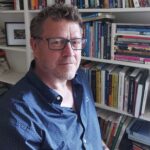
Dr. David Scott is a senior lecturer at Dalarna University in Sweden. Prior to moving to Sweden David lectured and undertook research at Southern Cross University, Australia, and at the University of Otago, New Zealand, where he also obtained his PhD. Before entering academia David had a career in hotel management in New Zealand, Australia, and the United Kingdom. David’s research explores the intersection of everyday life and tourism. David is particularly interested in the relationships between the spatial and performative aspects of the production and consumption of food, and social identity. More recently David has become interested in the idea of the graduate as a philosophical practitioner. This includes engaging with industry to re-imagine the role of university education in developing a sustainable future for tourism and hospitality. David has recently taken over as education coordinator in the Network for Academic Tourism Education and Research in Sweden (NATU).
Christine Garbe
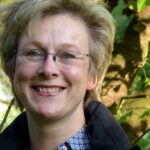
Christine Garbe was her study consultant for tourism destination management for 25 years. She worked on several national and international projects regarding sustainable tourism development in protected areas and rural management. During her work, she – inter alia – supported the Estonian Tourist Board in the European Award “Destinations of Excellence” over a period of three years. In 1989 she was cofounder of the European initiative “Tourism with insight” (1989 – 1992), which resulted in a hall for sustainable tourism initiatives and products at the travel trade show ITB Berlin managed by her till 2003. In 2002 she supported the implementation of the Swiss Quality Scheme “ServiceQuality” first in the federal state of Brandenburg and later in Berlin. Christine Garbe is employed at DSFT since 2013. Here she is responsible for the management of the seminar business unit. Moreover, she is responsible as a project manager in several national and international DSFT projects linked to sustainable tourism development and qualification in tourism. She is a certified DIN EN ISO quality manager and auditor as EFQM-assessor and did several assessments on behalf of Ludwig-Erhard Price in Germany.
Sheena Carlisle
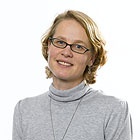
Dr. Sheena Carlisle is a Senior Lecturer in Tourism Management. Her qualifications are BA. (Hons) Hospitality Management, MA (Exon) Tourism and Social Responsibility, Msc. Built Environment Research Methods, Political Economy PhD. in Tourism. Sheena is currently developing research areas in Project Management application in tourism contexts that can help to address adverse impacts and increase the viability of tourism opportunities in local destinations. Teaching Commitments to include a wide range of academic subjects including Business and Tourism Ethics, Crisis, Risk and Strategic Change Management, Marketing, Sustainable Tourism, and Destination Management and Tourism Impact analysis, Visitor Attraction Management. Sheena’s PhD is entitled “A Political Economy of Small Scale Business Development in Gambian Tourism, West Africa”.
Barbara Neuhofer

Dr. Barbara Neuhofer is a Professor and Head of Experience Design at the Department of Innovation and Management in Tourism at the Salzburg University of Applied Sciences, Austria. Barbara’s work focuses on the intersection of human experiences, experience design, and transformation across the physical and digital domains. Barbara is an international speaker, tourism industry advisor, and co-founder of the award-winning Experience Design Summit Year Zero. In 2021, Barbara was contracted by the European Commission to lead the Digital Theme of the Tourism Transition Pathway 2030. Barbara’s work is widely published and she has received 15 international research awards.
Elfa Kere
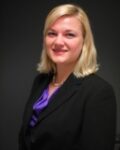
Elfa ĶERE joined the European Commission in 2005 and is currently a Policy Officer for tourism in the Directorate-General for Internal Market, Industry, Entrepreneurship, and SMEs. In addition to coordinating the Pact for Skills for the tourism ecosystem, she also is responsible for coastal and maritime tourism and transport (aviation, maritime, rail) files. She previously worked in the Aviation Directorate in DG Mobility and Transport (MOVE) on the Single European Sky project and in DG Home Affairs in the Visa Information System unit. She holds a Master of Science from the London School of Economics.
Kerstin Howald
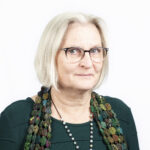
Having studied Social Sciences at Bremen University and graduated from Applied Business Languages and International Management with a Diploma in Chinese and Business Studies at Bremen University of Applied Sciences, Kerstin Howald has been working as Tourism Sector Secretary at the European Federation of Trade Unions in the Food, Agriculture and Tourism Sectors (EFFAT) and as Coordinator of the European Trade Union Liaison Committee on Tourism (ETLC), cooperation of European and International Trade Union Federations organizing workers in Tourism, since 1995. Being involved with European institutions, employers’ associations and Transnational Companies in the hotel, restaurant, and catering sector, EFFAT pursues decent work, fair remuneration, high-quality qualification and training, equal opportunities, and workers’ rights for all employees in the hospitality sector, through social dialogue, European Works Councils and shaping European social, labor and tourism policies.
Klaus Ehrlich

Klaus Ehrlich studied Economics – Business Administration at the University of Siegen (Germany) from 1976-1983, with one year at the University of Sevilla (81/82). Co-founder and manager of several entrepreneur associations related to rural tourism in Spain (RAAR, AHRA) from 1991 until 2006. Since 2002 he has been responsible for the management of the European Federation of Rural Tourism – Ruraltour as general secretary. Involved in working groups and consultative bodies at the European Commission related to tourism and rural development. Responsible for the Pact for Skills in Tourism at NTG-Next Tourism Generation Alliance.
Rino Vitelli
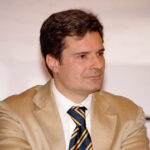
Rino Vitelli is a Senior Advisor specializing in destination marketing and management, with a career of over 25 years in the tourism sector, where he has worked for several companies, organizations, public bodies, national and international agencies, dealing with business development, cultural heritage enhancement, promotion of tourist attractions, training of human resources employed in the tourism industry. He currently works for Federturismo Confindustria as Project Manager and Coordinator of the international project “Next Tourism Generation Alliance”, co-funded by the European Union and developed by 14 partners representing 8 European countries.
- Contact
For any questions or inquiries, please contact us at info@nexttourismgeneration.eu
Documents
- Download the Building a Skilled Workforce Agenda Final







